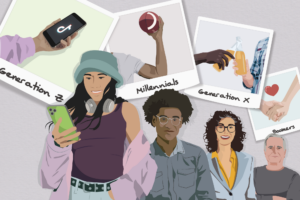We Live in a Nation of Strangers. That Needs to Change
Diversity is not the source of our current problems. We have become troublingly incurious about our neighbors
Daniel A. Cox March 13, 2022
Deseret News
After the 2016 election, there was a palpable feeling of bewilderment among Democrats who wondered how so many of their fellow citizens could have voted for Donald Trump. For many on the left, it was the disorienting sense of living in a country that they no longer recognized. But while this may have been a new feeling for liberals, many conservatives have long thought they were a “stranger in their own country.”
The United States is a nation with an incredible amount of racial, political, religious and geographical diversity. It’s no wonder that we don’t often agree with each other. But diversity is not the source of our current problems. Instead, it’s that we have become deeply incurious about each other, no longer interested in getting to know even the people who live next door. We live in a nation of strangers. Even when we do talk to our neighbors we’re increasingly doing it online, using platforms like Nextdoor or Facebook.








